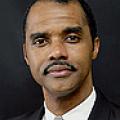I have often struggled with patriotic celebrations — even though I'm a military veteran. I struggle even more within the current American climate of black people being killed with impunity by police officers.
As I think about the history and founding principles of the U.S., through the lens of the Black Lives Matter movement, about the recent killing of Philando Castile, and the jury acquittal of the police officer responsible for that killing, it’s difficult for me to celebrate the idealized American past that we’re taught to see.
Many Americans are uncomfortable acknowledging the contradictions between the ideals of freedom and liberty and the realities of racial oppression in America.
Americans are extremely selective regarding the past they reflect upon. When confronted with the reality of America’s racialized past, many Americans will respond, “Slavery is over, it’s in the past. Stop talking about the past and move on.”
Many Americans invoke a selective past in order to reify a self-serving present.
If black Americans need to let go of the past, then so do white Americans. I am more than willing to let go of a historical dystopian reality if other Americans let go of a historical utopian fantasy. It’s impossible to let go of America’s racially violent past when many Americans invoke the past by declaring, “Make America Great Again.”
The “freedom” and “liberty” that so many in this country speak of has rarely existed for most black Americans. It has always been an ideal, never a reality.
I can’t help but ask myself the question that Frederick Douglass asked 165 years ago, “What have I, or those I represent, to do with your national independence?”
The oppressive racialized realities highlighted by the Black Lives Matter movement make Douglass’ words as important today as they were then. When Douglass gave his address on July 5, 1852, he asserted, “The blessings in which you, this day, rejoice, are not enjoyed in common. The rich inheritance of justice, liberty, prosperity and independence, bequeathed by your fathers, is shared by you, not by me. The sunlight that brought light and healing to you, has brought stripes and death to me. This Fourth of July is yours, not mine. You may rejoice, I must mourn.
Fellow-citizens, above your national, tumultuous joy, I hear the mournful wail of millions! whose chains, heavy and grievous yesterday, are, to-day, rendered more intolerable by the jubilee shouts that reach them. If I do forget, if I do not faithfully remember those bleeding children of sorrow this day, ‘may my right hand forget her cunning, and may my tongue cleave to the roof of my mouth!’ To forget them, to pass lightly over their wrongs, and to chime in with the popular theme, would be treason most scandalous and shocking, and would make me a reproach before God and the world.”
While Douglass’ subject was American slavery, the sentiment applies equally today to all the black people killed with impunity by police and disproportionately incarcerated in American prisons.
Above the national, tumultuous joy of Fourth of July celebrations, I hear the mournful wails of black Americans who are the victims of government-sanctioned violence. It is impossible for me to celebrate a liberating American ideal in the presence of an oppressive American reality.
I echo the words of Douglass as he stood in solidarity with the plight of black slaves: “Standing there identified with the American bondman, making his wrongs mine, I do not hesitate to declare, with all my soul, that the character and conduct of this nation never looked blacker to me than on this 4th of July! Whether we turn to the declarations of the past, or to the professions of the present, the conduct of the nation seems equally hideous and revolting. America is false to the past, false to the present, and solemnly binds herself to be false to the future. Standing with God and the crushed and bleeding slave on this occasion, I will, in the name of humanity which is outraged, in the name of liberty which is fettered, in the name of the constitution and the Bible which are disregarded and trampled upon, dare to call in question and to denounce, with all the emphasis I can command, everything that serves to perpetuate slavery-the great sin and shame of America! ‘I will not equivocate; I will not excuse’; I will use the severest language I can command; and yet not one word shall escape me that any man, whose judgment is not blinded by prejudice, or who is not at heart a slaveholder, shall not confess to be right and just.”
Criticizing the church for its silence in the face of racial injustice, Douglass declared, “At the very moment that they are thanking God for the enjoyment of civil and religious liberty, and for the right to worship God according to the dictates of their own consciences, they are utterly silent in respect to a law which robs religion of its chief significance and makes it utterly worthless to a world lying in wickedness….The fact that the church of our country (with fractional exceptions) does not esteem ‘the Fugitive Slave Law’ as a declaration of war against religious liberty, implies that that church regards religion simply as a form of worship, an empty ceremony, and not a vital principle, requiring active benevolence, justice, love, and good will towards man. It esteems sacrifice above mercy; psalm-singing above right doing; solemn meetings above practical righteousness.
… These ministers make religion a cold and flinty-hearted thing, having neither principles of right action nor bowels of compassion. They strip the love of God of its beauty and leave the throne of religion a huge, horrible, repulsive form. It is a religion for oppressors, tyrants, man-stealers, and thugs. It is not that ‘pure and undefiled religion’ which is from above, and which is ‘first pure, then peaceable, easy to be entreated, full of mercy and good fruits, without partiality, and without hypocrisy.’
… Americans! your republican politics, not less than your republican religion, are flagrantly inconsistent. You boast of your love of liberty, your superior civilization, and your pure Christianity, while the whole political power of the nation (as embodied in the two great political parties) is solemnly pledged to support and perpetuate the enslavement of three million of your countrymen. You hurl your anathemas at the crowned headed tyrants of Russia and Austria and pride yourselves on your Democratic institutions, while you yourselves consent to be the mere tools and body-guards of the tyrants of Virginia and Carolina.”
While Douglass offered a blistering critique of American hypocrisy, he also talked about the “hope” that stood before the nation. He wrote, “This celebration also marks the beginning of another year of your national life; and reminds you that the Republic of America is now 76 years old … According to this fact, you are, even now, only in the beginning of your national career, still lingering in the period of childhood.”
While 165 years have pass since Douglass’ speech, I would argue that America is still young.
This year, America celebrates 241 years as a nation. And while racial and ethnic oppression has been a defining characteristic of the nation since the first colonists landed on the shores of this land, I hold out hope that because of her youth, America can change course.
If we’re going to celebrate America’s past, let us reflect on America’s past in order to transform America’s present and America’s future.
Got something to say about what you're reading? We value your feedback!







